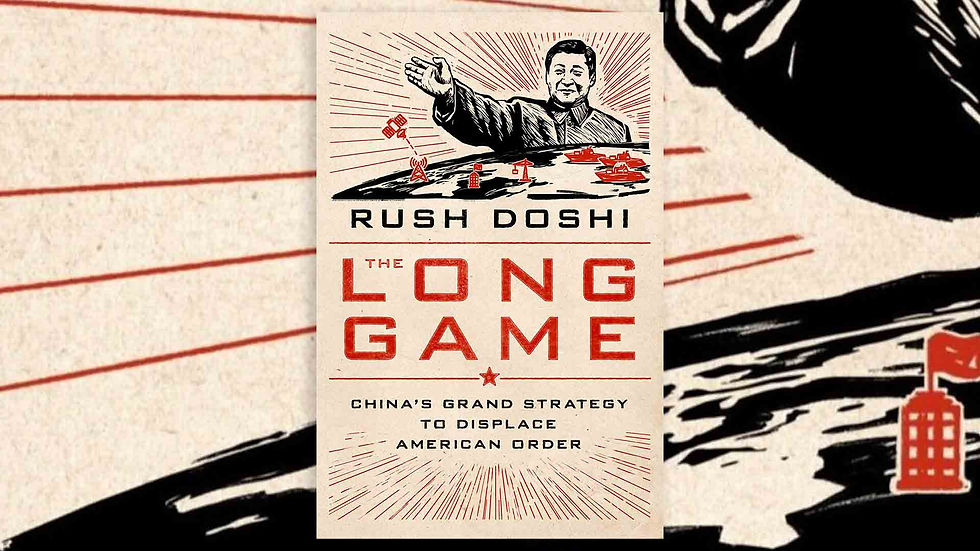Why Some Ideas Stick and Others Don’t: A Practical Guide to Made to Stick by Chip Heath & Dan Heath
- vickygunawan
- Mar 16, 2025
- 3 min read

In a world where countless messages compete for attention, why do some ideas thrive while others fade away? Made to Stick by Chip Heath & Dan Heath explores what makes ideas memorable, impactful, and shareable. Whether in marketing, storytelling, leadership, or branding, applying the principles from this book can help us craft messages that truly stick.
The key to sticky ideas lies in the SUCCESs framework—six principles that make ideas unforgettable: Simple, Unexpected, Concrete, Credible, Emotional, and Stories. Let’s break them down with practical applications.
1. Simple: Keep the Core Message Clear
Great ideas are easy to grasp. Complexity overwhelms, but clarity sticks.
✅ Find the Core Message – Strip ideas down to their essential meaning.
✅ Use Analogies – Compare new ideas to familiar ones.
✅ Avoid Jargon – Speak in plain language.
🚀 Example: Southwest Airlines’ strategy is simple: “We are THE low-fare airline.” Every decision aligns with this focus.
2. Unexpected: Capture and Hold Attention
People tune out the predictable but pay attention to surprises.
✅ Break Expectations – Introduce an unexpected twist.
✅ Create Curiosity Gaps – Make people want to learn more.
✅ Challenge Assumptions – Flip conventional thinking.
🚀 Example: "Did you know a can of Coke contains 10 teaspoons of sugar?" A shocking fact that changes perceptions.
3. Concrete: Make It Tangible
Abstract ideas fade, but vivid details and sensory descriptions stick.
✅ Use Real-World Comparisons – Help people visualize the message.
✅ Make it Sensory – Describe how things look, feel, sound, or taste.
✅ Avoid Abstract Buzzwords – Be specific.
🚀 Example: Instead of saying "fast food is unhealthy," say: "One McDonald's milkshake has more sugar than two Snickers bars."
4. Credible: Make It Believable
Ideas must feel trustworthy and backed by proof.
✅ Use Real Data – Specific numbers are more persuasive.
✅ Leverage Authority Figures – Experts and testimonials add credibility.
✅ Let People Experience It – Seeing is believing.
🚀 Example: Subway used Jared Fogle’s real weight-loss journey to promote its healthy menu. A real person’s experience made it credible.
5. Emotional: Make People Care
Facts inform, but emotions inspire action.
✅ Appeal to Core Human Emotions – Joy, fear, empathy, pride.
✅ Show Real People, Not Just Statistics – Stories of individuals resonate more than numbers.
✅ Make It About Them – Frame the message in terms of personal impact.
🚀 Example: Charity ads often feature one child’s struggle rather than just stats on poverty—because emotions drive action.
6. Stories: Use Narratives to Inspire Action
People remember stories, not just facts. Stories make ideas relatable, engaging, and shareable.
✅ Use Real-World Examples – Case studies or customer experiences.
✅ Follow the Classic Story Structure – Challenge → Conflict → Resolution.
✅ Make It Personal – First-person experiences connect better.
🚀 Example: Airbnb doesn’t just list features; they tell real customer stories about unique stays and connections.
How to Apply Made to Stick in Marketing & Communication
Simplify Branding and Messaging
Example: Tesla’s core message—“Sustainable energy and performance.”
Use Surprise to Grab Attention
Example: Red Bull’s slogan “gives you wings” is unexpected and intriguing.
Make Ideas More Concrete
Example: Instead of “high protein,” say “More protein than 3 eggs.”
Back Up Claims with Proof
Example: “Clinically proven to reduce wrinkles in 2 weeks.”
Create Emotional Connections
Example: Nike’s ad with Colin Kaepernick: “Believe in something. Even if it means sacrificing everything.”
Use Stories to Spread Ideas
Example: Airbnb’s storytelling approach builds trust and connection.
Great ideas don’t just happen—they follow patterns. The SUCCESs principles help us craft messages that not only stickbut also spread, influence, and inspire action.
✔ Simplicity is key—less is more.
✔ Surprise, emotions, and stories make ideas unforgettable.
✔ Concrete, credible, and clear messages spread faster.
By applying these principles, we can communicate in a way that resonates, lasts, and drives action. 🚀
@beetvemiona



Comments